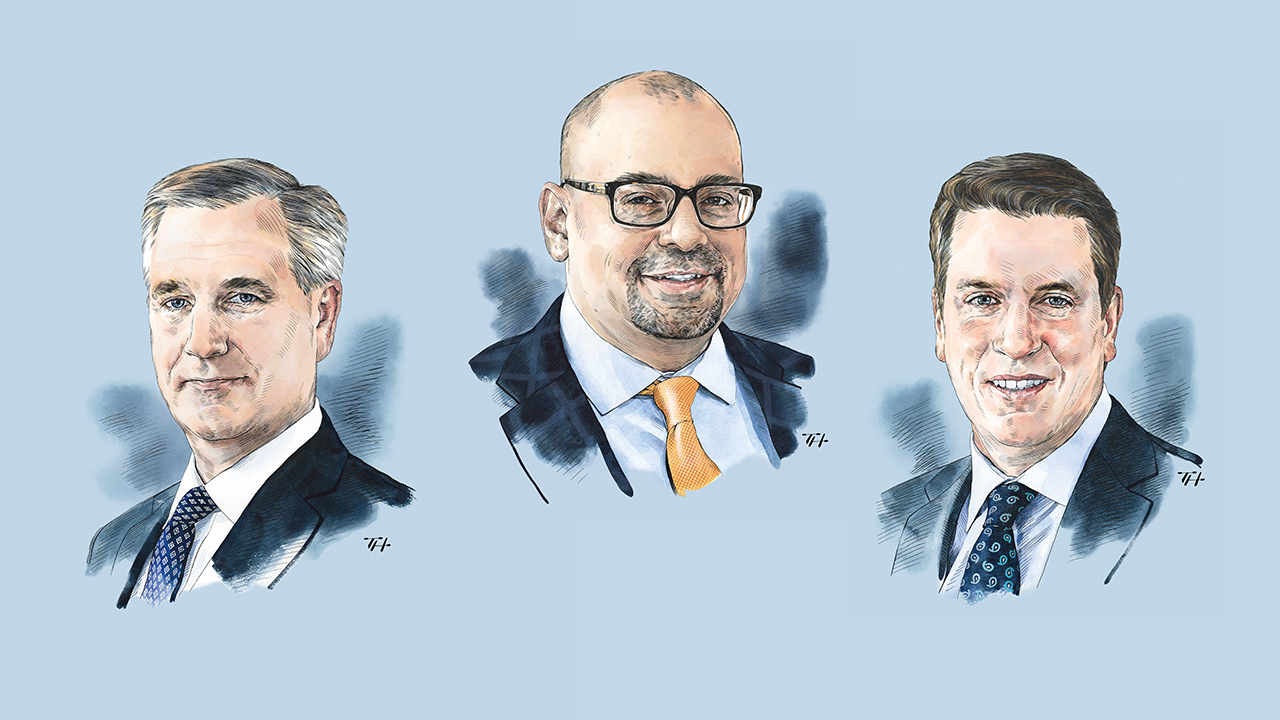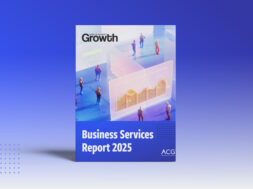In Challenging Times, Lender Relationships Are Key
Working through multiple credit cycles, Twin Brook has witnessed how important open communication can be to its borrowers and their sponsors.

This content is sponsored by Twin Brook Capital Partners. It originally appeared in the September/October 2020 issue of Middle Market Growth. Read the full issue in the archive.
The decade leading up to 2020 was accompanied by extremely strong market conditions and abundant capital, prompting some private equity firms to view lenders as a commodity as they sought the best loan pricing.
However, in the face of the COVID-19 pandemic and the unique challenges it created for industries and businesses worldwide, many sponsors that neglected their lending relationships found themselves at a disadvantage, as their competitors turned to trusted lenders for sound advice and the flexible financing needed to navigate unprecedented times.
Healthy credit markets helped bolster private equity deal activity in recent years, creating the illusion of limitless capital and, for some, little need for sponsors to form strong relationships with their lenders. Global private equity deal value in 2019 reached $551 billion, down just slightly from 2018, according to Dealogic. Last year, deals with debt multiples higher than 6x EBTIDA became the norm, accounting for over 75% of the total, Refinitiv LPC data shows. More than 55% of U.S. buyout deals in 2019 had a purchase price multiple of more than 11x, according to Refinitiv LPC.
Then came the fallout: Leveraged lending dropped a whopping 80% from January through April 2020, according to Dealogic. Private equity firms that cemented strong relationships with lenders prior to the crisis were generally happy they did, while some others found themselves in a challenging position.
“We have certainly self-selected to work with firms that value their relationships with lenders. These firms are looking for partnerships, not the cheapest financing.”
Rich Christensen
Senior Partner, Twin Brook
“We have certainly self-selected to work with firms that value their relationships with lenders. These firms are looking for partnerships, not the cheapest financing,” says Rich Christensen, a senior partner at Twin Brook Capital Partners. He adds that he believes Twin Brook’s private equity clients typically want to work with a “lender that will provide certainty and expertise that will help them and their middle-market portfolio companies manage through both downturns and periods of growth.”
Having experience working through multiple credit cycles, the Twin Brook team has witnessed how important the open line of communication and information flow that comes with these deep relationships can be, as it supports the firm’s ability to act as a partner and help its borrowers and their sponsors work through any issues that might be on the horizon.
But this type of give-and-take partnership doesn’t happen overnight. It comes from years of building relationships based on trust and transparency. Many of Twin Brook’s professionals have spent a substantial amount of time and thoughtful effort cultivating bonds with reputable private equity firms.
Grant Haggard, a senior partner at Twin Brook, cites one client with whom he interacted for nearly a decade before ever closing a deal together. “It took time and legwork to get into a position to transact. But when we did, the deal worked out extremely well and we have established a long-term relationship with that client,” he says. “Some lenders are more transactional, and that’s fine, but that’s not how we operate.”
Shortly after being founded, this particular sponsor was one of the first that Twin Brook closed a deal with, and they’ve partnered on seven more transactions since then.
In early April, in the throes of the pandemic, the sponsor had a portfolio company that was spinning off and combining with a competitor. The transaction was complex, and COVID-19 added even more uncertainty, Haggard recalls.
“If there had been no relationship, that deal may not have happened; very few other lenders would have taken on this transaction at that time. But we had trust in them and a solid working relationship, so we were able to move forward,” he says. “We had long-term experience with this sponsor and insight on how they operate—having seen them successfully execute on their growth strategies for businesses and manage them through good times and bad—and that allowed us to get comfortable.”
Value of a True Partner
There are some sponsors that want the cheapest pricing and treat lenders as a transactional part of the deal, but others, like Incline Equity Partners, recognize the value of a deeper partnership.
“We want to make sure we are working with lenders that can respond quickly and then follow through seamlessly on their commitments—we want to work with someone who will do what they say they will,” says Incline Senior Partner Leon Rubinov. “It’s easy to talk a big game when everything is going gangbusters, but deals get tested.”
Rubinov adds, “It’s often simple to get a deal financed. It’s hard when things go sideways. That’s when you need a true partner, and that’s why we value building ongoing lender relationships.”
Scaling Together
Some private equity firms look to their lenders for flexibility and sound advice. Many also need a lending partner that can scale up as they grow their portfolio companies.
Arsenal Capital Partners thinks of itself as a company builder—crafting transformative strategies for companies and building high-growth market leaders. “We need to work with a lender that can scale with our companies, as we may start with a business with $10 or $15 million of EBITDA that we look to grow to $100 million or above,” says Roy Seroussi, an investment partner with Arsenal. “It’s an intensive approach. Our primary focus is often not on optimizing pricing or covenants, but on finding a lending partner that understands what we are trying to do with our companies.”
For Arsenal, there are a host of factors to take into account when building a lending partnership. “Our relationship with Twin Brook has been very collaborative. They have been flexible and have proven their value-add to us,” Seroussi says.
“Some lenders are more transactional, and that’s fine, but that’s not how we operate.”
Grant Haggard
Senior Partner, Twin Brook
Twin Brook partnered with Arsenal for one of its most complex deals to date. Over the course of several months, Arsenal merged four businesses to create Elite Comfort Solutions, which became a leader in polyurethane foam technologies primarily serving the bedding market. The companies didn’t have audited financials or traditional sell-side bankers. “It was not a straightforward transaction. We partnered with Twin Brook and did the best we could with limited information. Few lenders would have been able to get comfortable with it,” Seroussi says. Early last year, Arsenal successfully sold Elite to Leggett & Platt in an all-cash transaction for $1.25 billion.
More recently, Twin Brook helped one of Arsenal’s portfolio companies complete an acquisition to create a leader in specialty water treatment chemicals. “We did this in the midst of COVID-19. It was a difficult time to finance a new deal, but Twin Brook showed their ability to close deals regardless of the environment,” Seroussi recalls. “I don’t know if this deal would have happened if we didn’t have the relationship.”
Steadfast through Ups & Downs
It’s hard to know what M&A will look like in the coming months, amid continuing uncertainty created by COVID-19. Regardless of the outcome, the situation has highlighted how private equity firms often benefit from working with lenders who will stick with them, regardless of the macroeconomic challenges that will inevitably arise.
Twin Brook’s commitment to being a dependable, solutions-focused partner has always been core to their strategy and is something that sponsors and borrowers appreciate, especially in times like these. This includes Varsity Healthcare Partners, a private equity firm focused on lower middle-market health care services companies and a longtime Twin Brook client. Kenton Rosenberry, a founding partner of Varsity, notes, “The consistency, reliability and expertise that the Twin Brook team brings to bear is exceptional and is a big part of why we have continued to partner with them over the years, working together on over 10 transactions to date.”
Twin Brook’s clients have experienced the value of a strong lending relationship firsthand, and the firm has shown that it’s committed to fostering new partnerships and serving its existing sponsors and borrowers through good times and bad.
“Despite the pandemic-related uncertainty and challenges prevalent across both the private equity and direct lending markets, we closed five platform acquisitions between late March and the end of April. Our clients are focused on capitalizing on good opportunities, whenever they may arise, and so are we. When we’ve forged a deep relationship with a sponsor, we are often able to be more flexible— because of that strong foundation—and are willing to get more creative when it comes to supporting them,” says Faraaz Kamran, a senior partner at Twin Brook. “Simply closing transactions is easy; being willing to roll up your sleeves and work hand-in-hand with clients through both ups and downs is the hard part, and we do just that.”


